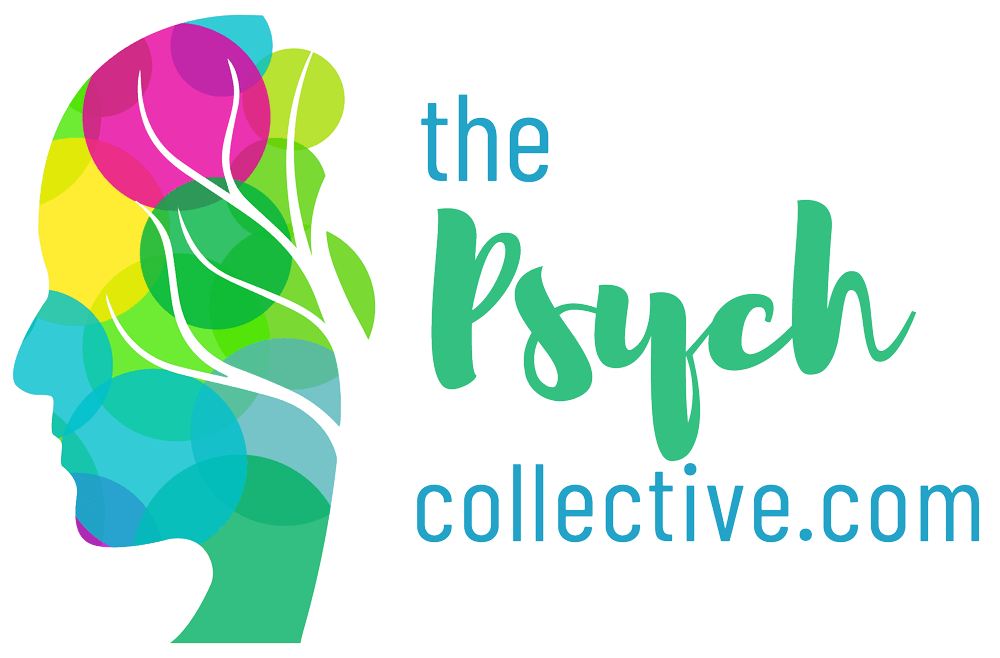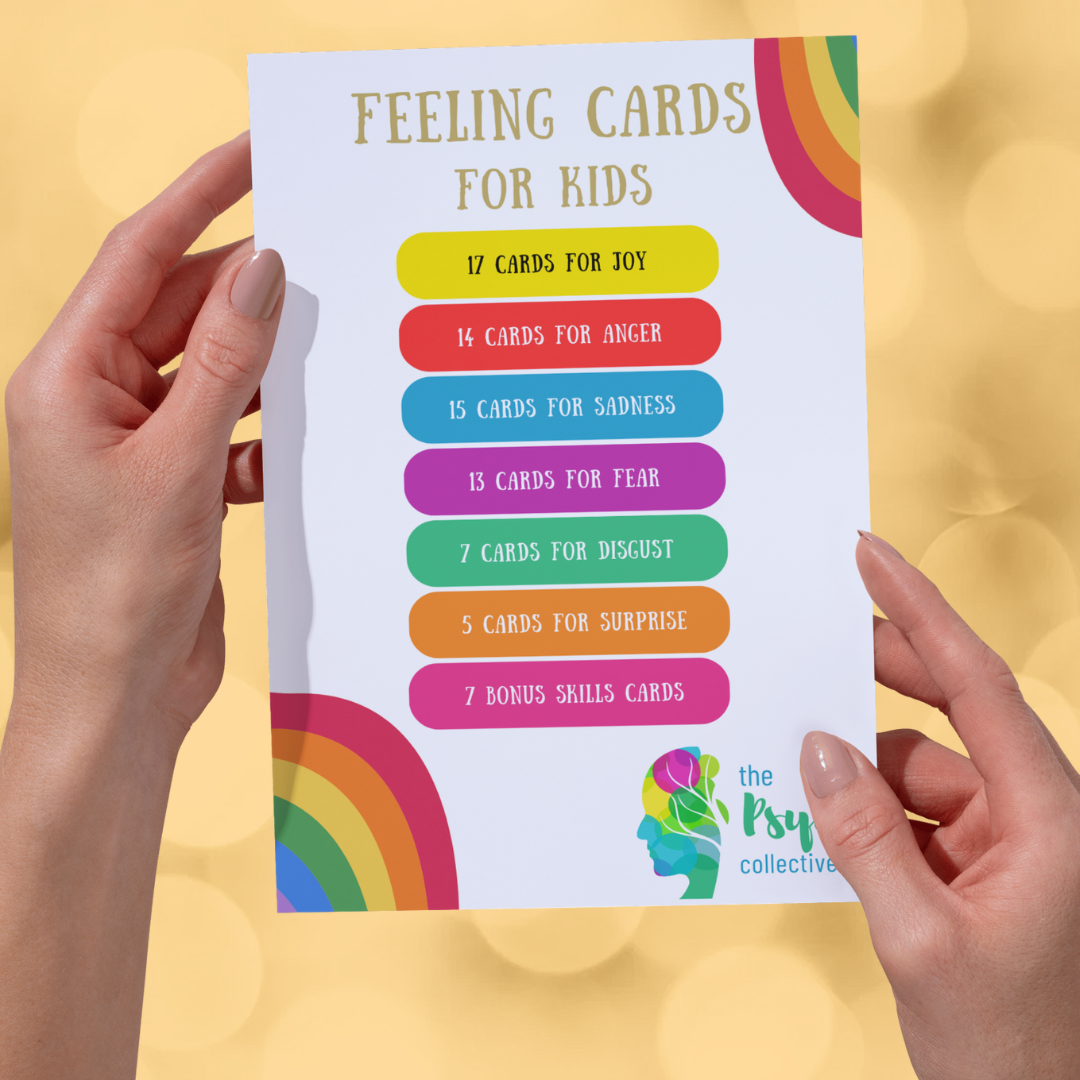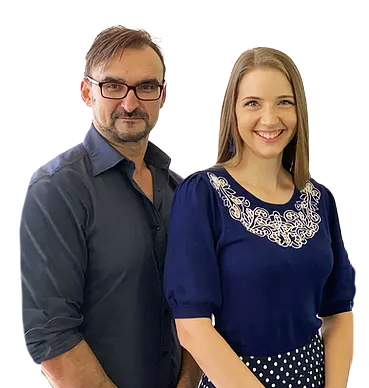Order your mental chaos
Stop the cyclone in your mind
You know that feeling of when the thoughts inside your mind keep swirling around on a continuous loop? As if your brain is wanting to constantly remind you of important things so you don't forget? Your mind is occupied with all that chaos, so you can't sleep?
Yet in all that chaos, you can't sort out your thoughts so nothing productive actually comes of it?
That is the reason that Dr Al came up with the four buckets technique.
We often get the sense that my head is really full of thousands of things that need to be done, and yet when I make the time to sit and write it out the list is actually shorter than expected. The swirling mess in my mind creates the illusion of the problem being so much bigger than it actually is. Getting it down on paper allows me to see what I am really dealing with, and thus make a plan to tackle it.
However, a disorganised to-do list is not helpful. That is why we offer the Four Buckets technique to structure the way you go about this. A schedule of tasks is way more helpful that a list because a schedule will help you to allocate the time to get the task done. A to-do list will just nag you until the list is finished, and I know in my case I am very good at adding to that list faster than crossing stuff off.
So here is the four buckets technique.
Divide a sheet of paper into 4 sections "To do", "Projects", "Deeper stuff" and "Junk" (or download the "Order Your Chaos with Four Buckets " handout). Sit at an uncluttered table with that paper and a pen. Close your eyes. Pay attention to the thoughts that bubble up. As the thoughts bubble up: write the thoughts down in their appropriate bucket. Spend at least 10 minutes or as long as you need to declutter your mind.
Here's what goes into each bucket:
To Do
This stuff is the urgent or easy stuff that needs your attention soon so you can knock it off your list.
This might include things like paying bills, signing kids permission slips, writing your grocery list, etc.
Projects
The less urgent yet still important tasks that need your attention that perhaps are big jobs that need planning. This might include things like organising the garage, renovations, finishing a big project at work or school, planning your next holiday, etc.
Deeper Stuff
This may include anything that is not urgent, yet may also be harder to action. We may not see the way forward on our deep stuff. This could be things like wishing you could fix your relationship with your mother, or wanting to spend more time playing with the kids. Or a past trauma memory that keeps intruding on your thoughts. This is probably the bucket you need to share with your therapist.
Junk
This one is for the random stuff that your mind generates that doesn't really need any action. The fact that the public transportion timetables need work. This stuff isn't ours to action so we can work on letting it go by declaring it as "junk".
Order mental chaos - declutter the mind
If you often feel that your head is full, then get into the regular habit of using the four buckets. Over time, you may relabel the buckets to suit your needs and that's fine. Either way, it is important for you to take control of your mental chaos so you can sort your chaos out.
Need more?
Watch this video of Dr Al explaining and using this technique and then jump to our Resources page to download the handout.
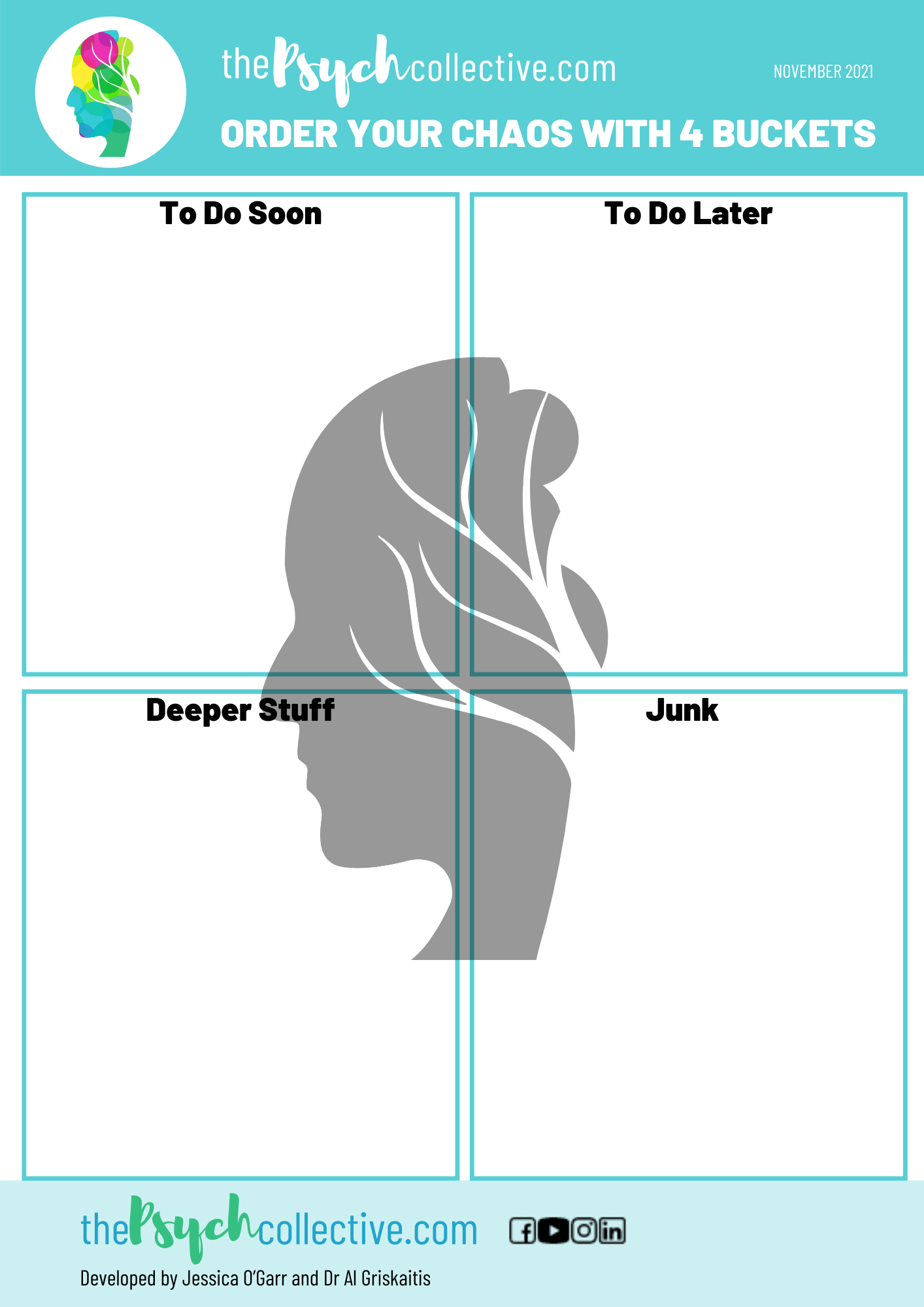
Share
Categories
About Our Resources
We offer actionable resources and teach real skills to help people make meaningful change in managing mental health issues through different modes depending on people's learning preferences including infographics, text, worksheets, handouts and video.
